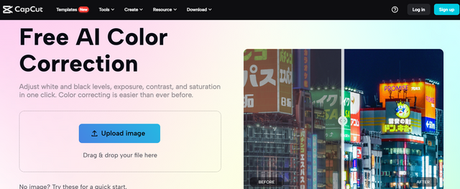Video editing is an art form that blends creativity and technology. While once becoming a video editor required a lot of technical skills and experience with editing software, modern applications allow enthusiasts without much know-how to easily pick up editing and learn as you go. How do you go about turning your passion for video editing into a sustainable career? Let’s find out how to go about it.
Who is a video editor?
At its core, video editing is about telling a story using motion pictures. Video editors have the power to control the pace, tone, and narrative flow of any video or movie. They refine the raw footage into a coherent story – without them, the creative process of creating a movie would only produce a barely comprehensible conglomeration of scenes. To do this right, video editors need to show technical understanding of tools they use, a good aesthetic sense, and tons of patience.
If you’re not very tech-savvy, don’t worry – you can use a free online video editor like CapCut to make video editing easy and fun. Created with a user-friendly interface, CapCut makes complex editing tasks accessible to both beginners and experienced editors. The app has just released a browser-based version of their software, accessible from a wide range of devices and offering features like cutting and combining clips, adding music, incorporating text, applying filters, and more – along with a plethora of AI-powered tools.
Any aspiring video editor could benefit from using CapCut - it’s easy to learn but provides plenty of powerful features that make editing a breeze. You can quickly create new video projects from ready-made templates for YouTube, Facebook, TikTok, Instagram, and more platforms.
What education and skills are required to become a video editor?
Formal education is just the tip of the iceberg when it comes to becoming a successful video editor – it’s definitely helpful, but probably won’t dictate whether you’ll make a career out of it or not. If you’re dedicated to pursuing helpful education, many editors start with Film Studies or Communication, or similar, related fields. While many video editors hold at least a bachelor’s degree, they don’t always have it in film or video production.
Many passionate editors decide to turn their passion into a career after they’ve already finished formal education in a different field. It’s never too late to start building your video editing career, and skills are much more important in this industry than education. Master software like Adobe Premiere Pro, Final Cut, or CapCut - they’ll be key to your success.
To aid beginner editors, CapCut offers advanced features that don’t require intricate technical knowledge, such as AI-powered color correction or video upscaler. After you shoot your video, simply put it into CapCut and let the AI take over, making decisions based on massive data gathered from best-performing videos online. You can also use AI to automatically generate subtitles with accuracy from speech, or convert your text files into speech to make your content more engaging.
Building a video editor’s portfolio step-by-step
Your portfolio will almost definitely be more valuable than any diploma you might have, as is standard with many creative professions. Beginner editors should focus on developing a strong and diverse portfolio that demonstrates their abilities to edit videos in various styles and formats.
Building your portfolio can start small – editing video clips for social media, volunteering for school projects, or looking for small local gigs that could boost your experience. Internships and assistant roles at post-production companies or television stations can also provide valuable experience and gain you additional connections in the industry.
Networking plays a huge role in building a career in video editing. Look out for any promising industry events to attend and stay active on professional platforms like LinkedIn. More connections equal more job opportunities, and showcasing your work on social media platforms can further draw attention to your skills and style.
Finding gigs as a small-time video editor
The hardest part of turning your passion for video editing into a job is actually finding gigs that will pay you for your part. Websites such as Upwork, Fiverr, or Freelancer are great places to start – they are platforms where all kinds of businesses and individuals post offers for jobs, including video editing contracts. Create a profile on these websites and showcase your portfolio. Start applying for gigs and building a future client base.
You can also try more specific job boards, like ProductionHUB or Mandy, which are tailored specifically for the film and video industry. Social media platforms like LinkedIn, Facebook, or Twitter can also help you find new job opportunities – look for specific groups targeted for posting video editing gigs.
All in all, turning your passion for video editing into a profession is a long and difficult journey that will require patience and perseverance. Keep refining your technical skills, expanding your portfolio, and making new connections – the reward will definitely be worth it.


